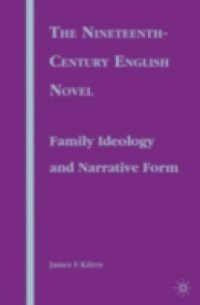The novel is the literary form that most extensively informs us of nineteenth-century English culture: not its realities but the ideologies that shaped social beliefs. Fiction not only reflects ideologies; it participates in their formation and modification. But ideologies shift rapidly ? more than actualities of personal or social life, making the form of the novel shift accordingly. Consideration of four pairs of English novels, each of which extensively treats the most critical issue of the period ? the survival of the family ? shows how changes in ideology prompted fundamental revisions of fictional techniques and structures.

